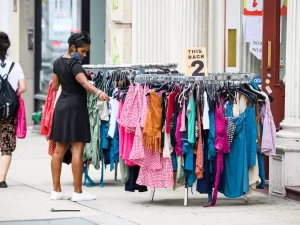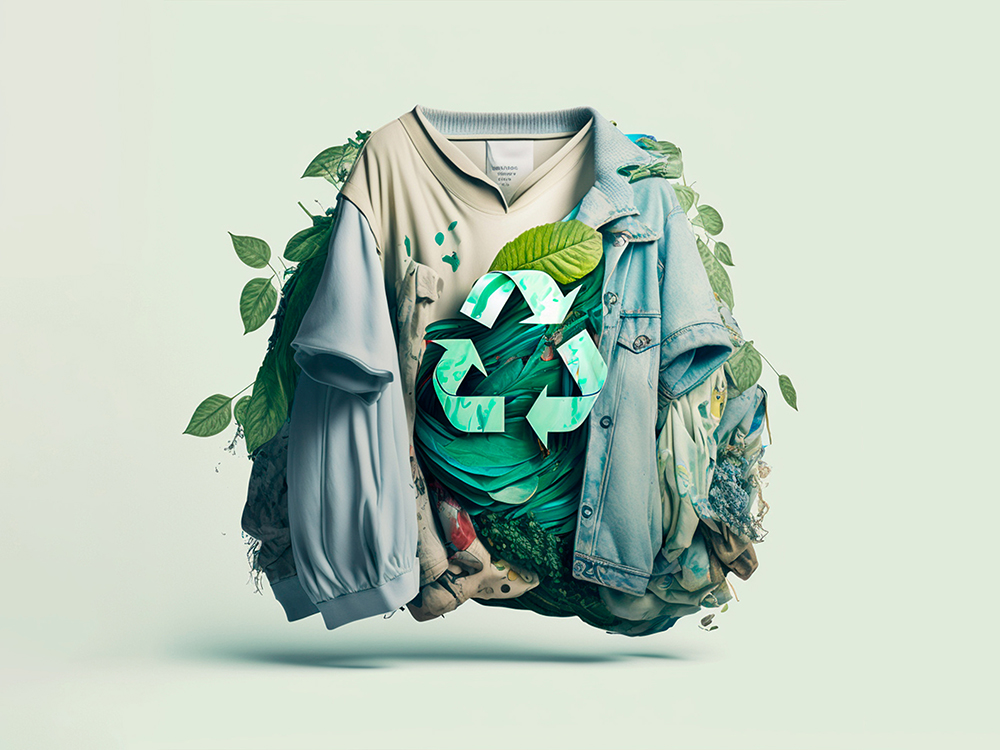Fast fashion is known for offering trendy and affordable clothing to consumers. However, fast fashion has also been leading to detrimental environmental and social consequences. The rapid production, high turnover, and questionable labor practices associated with fast fashion have raised concerns about its impact on the planet and the people involved.
However, the rise of resale fashion platforms and the growing interest in sustainable practices have sparked a debate over whether resale fashion can serve as a viable solution to fast fashion’s problem. In this article, we explore the potential of resale fashion as a sustainable alternative to fast fashion.
The Problem with Fast Fashion
Fast fashion has become synonymous with a throwaway culture, where clothes are produced at a fast pace and are often disposed of after just a few wears. This model puts an enormous strain on natural resources. Additionally, it generates, vast amounts of textile waste, and contributes significantly to carbon emissions. Furthermore, the pressure to cut costs has led many fast fashion brands to outsource production to low-wage countries. This results in exploitative labor practices and poor working conditions.

Resale Fashion: A Sustainable Alternative
Resale fashion, also known as second-hand fashion, involves the buying and selling of used clothing and accessories. This sustainable alternative to fast fashion offers several key benefits that make it an attractive solution to the industry’s problems:
- Reduced Environmental Impact: By extending the life cycle of garments, resale fashion helps reduce the need for new production. This lowers the consumption of resources and energy. It also diverts textiles from landfills, contributing to waste reduction.
- Promoting Circular Economy: Resale fashion fosters a circular economy by encouraging the reuse and recycling of clothing. Instead of ending up as waste, garments continue to have value and utility through multiple owners.
- Decreased Demand for Fast Fashion: As consumers embrace resale fashion, the demand for new, fast fashion items decreases. Additionally, this shift in consumer behavior can drive fast fashion brands to reconsider their practices and adopt more sustainable approaches.
- Ethical and Transparent Practices: Many resale platforms prioritize ethical business practices, ensuring fair treatment of sellers and buyers alike. Moreover, some platforms support charitable causes, offering a philanthropic aspect to the fashion experience.

Challenges and Limitations
While resale fashion presents promising solutions, it is not without its challenges and limitations:
- Perception and Stigma: Some consumers may still associate second-hand clothing with inferior quality. Consumers could also consider it less fashionable than new clothing, hindering wider adoption.
- Accessibility and Diversity: Resale fashion might not cater to all styles or sizes, making it harder for some individuals to find suitable options.
- Market Saturations: The growing popularity of release fashion could potentially saturate the market with an abundance of second-hand items, leading to its own sustainability challenges.
- Long-term Impact of Fast Fashion: While resale fashion may incentivize fast fashion brands to reconsider their practices, it remains uncertain how significant this impact will be in the long run.
In the battle against fast fashion’s problems, resale fashion emerges as a commendable contender. Its able to offer sustainable, affordable, and stylish clothing, while reducing environmental impact. Additionally, it promotes ethical practices, making it a promising alternative for consumers seeking to make more conscious choices.
Nonetheless, it is essential to recognize that no single solution can completely resolve the issues inherent in the fast fashion industry. Instead, a holistic approach involving consumer awareness, industry-wide changes, and innovative technologies is required to build a more sustainable fashion ecosystem. By supporting resale fashion and embracing conscious consumerism, we take a step towards a greener, fairer, and more responsible fashion future.



